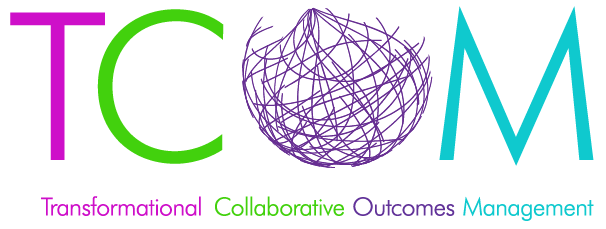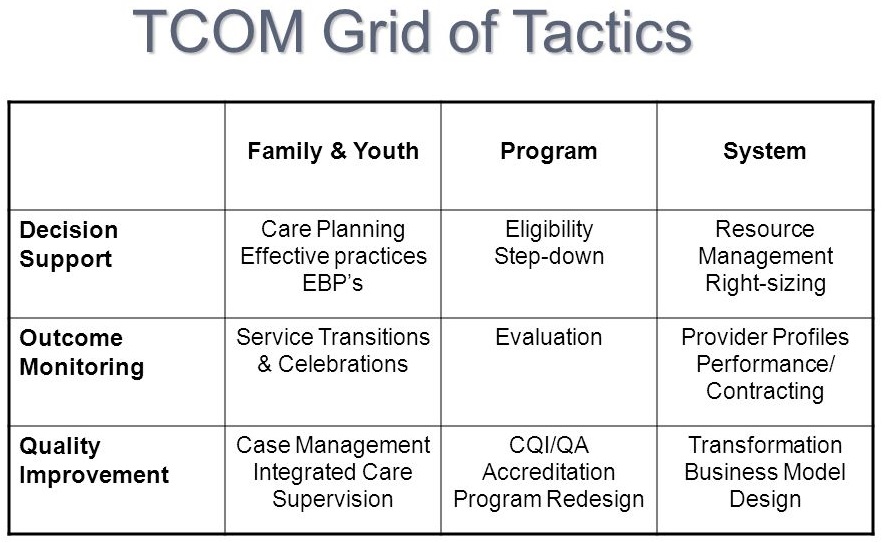
Within this framework, there is a philosophy, a strategy, and a set of tactics all designed to facilitate an effective and integrated approach to addressing the needs of people.
Philosophy
The TCOM approach is grounded in the concept that the various perspectives in a complex service system creates conflicts. The tensions that results from these conflicts are best managed by keeping a focus on common objectives—a shared vision. In human service enterprises, the shared vision is the person (or people served). In health care, the shared vision is the patient; in the child serving system, it is the child and family, and so forth. By creating systems that all return to this shared vision, it is easier to create and manage effective and equitable systems.
Strategy
In order to accurately represent the shared vision, a structured assessment is created that directly informs service/intervention planning. This assessment tool is used to communicate the shared vision throughout the system. Since the individuals working directly with people are in the best position to already make their decisions based on the shared vision (the people they are serving), it is critical that the structured assessment is useful to them so that it is completed with reliability and validity.

The information on this page has been adopted from the John Praed Foundation.
